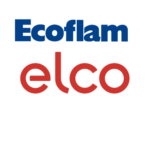
Swine incinerators
Effective Swine Waste Management with Swine Incinerators
Swine farming is a significant industry that contributes to the global food supply. However, managing swine waste is a crucial aspect of this industry, as improper disposal can lead to environmental contamination, odor issues, and the spread of diseases. Swine incinerators offer an efficient and environmentally responsible solution for swine waste disposal.
What are Swine Incinerators?
Swine incinerators are specialized equipment designed to burn swine carcasses, manure, and other organic waste at high temperatures. The high temperatures incinerate pathogens and microorganisms, preventing the spread of diseases such as swine fever, porcine circovirus type 2 (PCV2), and foot-and-mouth disease (FMD).
Benefits of Swine Incinerators
Swine incinerators provide several advantages for swine waste management, including:
- Biosecurity: Incineration effectively eliminates harmful pathogens and microorganisms, preventing the spread of diseases from swine waste to humans, other animals, and the environment.
- Odor Control: Burning swine waste significantly reduces unpleasant odors, improving air quality in and around swine farms.
- Environmental Protection: Incineration minimizes the potential for environmental contamination from swine waste runoff, preventing pollution of water sources and soil.
- Volume Reduction: Incineration significantly reduces the volume of swine waste, minimizing storage requirements and transportation costs.
- Compliance with Regulations: Incineration adheres to stringent environmental regulations for swine waste disposal, ensuring compliance with local, national, and international standards.
Types of Swine Incinerators
Swine incinerators come in various sizes and designs to accommodate different capacities and waste streams. Some common types include:
- Batch Incinerators: These incinerators process swine waste in batches, typically handling smaller volumes.
Batch Swine Incinerator
- Continuous Incinerators: These incinerators operate continuously, processing large volumes of swine waste efficiently.
Continuous Swine Incinerator
- Portable Incinerators: These incinerators are mounted on trailers or vehicles, making them ideal for temporary or remote locations.
Portable Swine Incinerator
- On-Farm Incinerators: These incinerators are permanently installed on swine farms, providing a convenient and efficient solution for routine waste disposal.
OnFarm Swine Incinerator
Choosing the Right Swine Incinerator
Selecting the appropriate swine incinerator depends on several factors, including:
- Volume of Swine Waste: The capacity of the incinerator should match the volume of swine waste generated.
- Frequency of Disposal: The incinerator’s operation should align with the frequency of swine waste disposal.
- Available Space: The size of the incinerator should fit the available space at the disposal site.
- Emission Control Requirements: The incinerator should meet local and national emission control standards.
- Environmental Regulations: The incinerator should comply with local, national, and international environmental regulations.
Professional Installation and Maintenance
Proper installation and maintenance of swine incinerators are essential for optimal performance, safety, and compliance with environmental regulations. Experienced professionals should handle the installation process to ensure proper operation and adherence to safety standards. Regular maintenance, including inspections, cleaning, and emissions testing, is crucial to maintain the incinerator’s efficiency, extend its lifespan, and minimize the risk of environmental pollution.
Conclusion
Swine incinerators play a critical role in swine waste management, providing a safe, efficient, and environmentally responsible solution for the disposal of swine carcasses, manure, and other organic waste. By eliminating harmful pathogens, reducing odors, and minimizing environmental impact, swine incinerators contribute to biosecurity, animal health, and environmental protection, ensuring sustainable swine farming practices.

